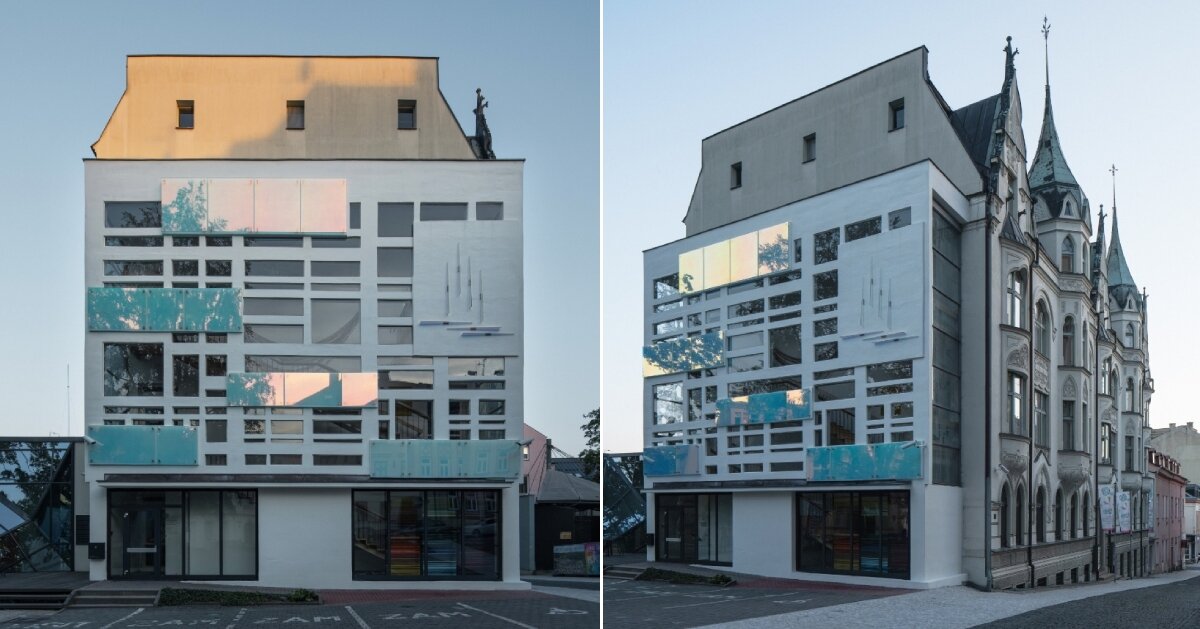Tereza Šváchová presents the apparent presence
For The Apparent Presence, Tereza Šváchová wraps the edge facade of the Museum of Glass and Jewelry in Jablonec nad Nisou, Czech Republic, in a geometric collage with a dichroic effect. As the seasons change, and as observers move past the space or wait motionless, the glass lends an ever-evolving interplay of light and shade.
Pelant’s 1960s staircase, attached to the museum, is stylistically true and characterized by a monochrome white and a geometrically pure grid. The original blue-green mosaic, filling in the now blind parts of the grid, has been removed over time. Originally, the facade made an objectively beautiful first impression. On the second, however, it was somewhat bare. Any color intervention that implies a reinterpretation of an otherwise sovereign work is a bold one, so Šváchová’s new work retains the original boundaries and purposefully creates a dynamic contrast with the white background. ‘Like the sun at the first snow in the Jizera Mountains,’ says the Czech architect.
all images courtesy of Petr Polák
prismatic glass adds light to the geometric facade
‘Glass can have qualities beyond human experience. It manages to put both the observer and its creator in doubt, and in almost the same moment, in the conviction that it is exactly as present as it appears,’ she continues. The conceptual center of gravity of Tereza Šváchová’s design is a pane glass with a dichroic effect reacting to light, creating the impression of constant movement.
Five of the six treated parts are divided in a strictly orthogonal grid, and the individual panes of glass are systematically tilted towards each other, creating a vibrant dialogue of the shadowbox not only between themselves but also with their immediate surroundings. The largest of the surfaces remains seemingly empty, but over time it is filled with multitude prismatic reflections of triangular glass drawing a pastel image of the original Jizera Mountain fir trees towering over the typical peat bogs.
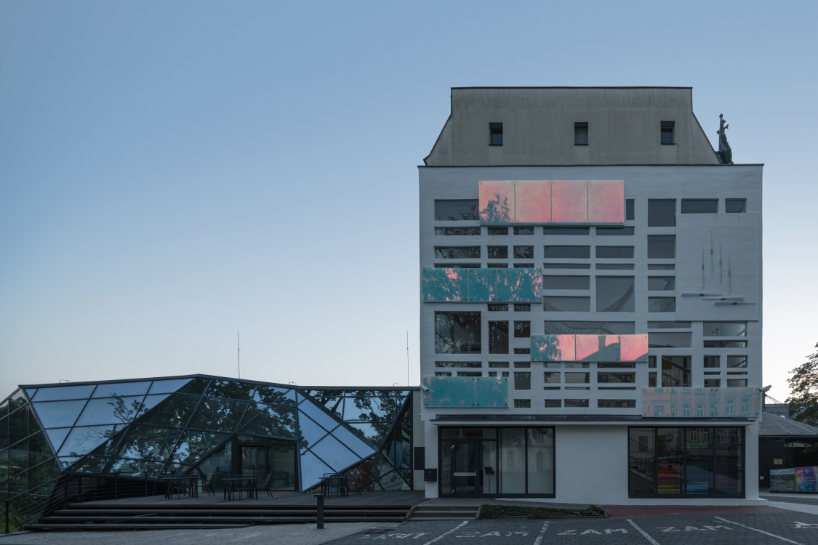
Tereza Šváchová presents The Apparent Presence
The point-anchored panes of glass are sandwiched with foil, thus safe and demountable for facade cleaning purposes. The dichroic layer further allows otherwise colorless glass to selectively reflect different wavelengths, depending on the angle of view and type of light beam, while transmitting others. It changes from a reflective golden mirror to a subtle veil reflecting almost imperceptibly subtle flashes of color, and the unexpected shadows inside the building create a welcoming a moment of surprise for visitors.
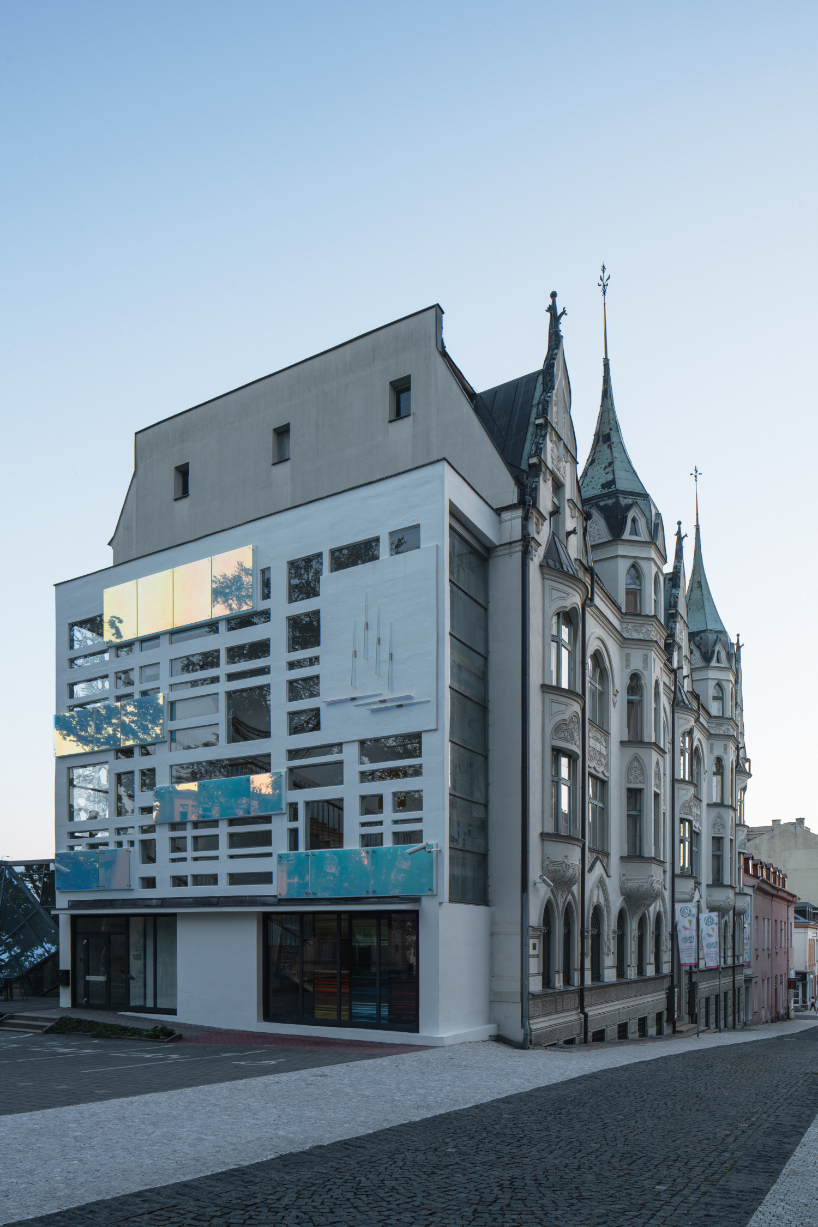
Pelant’s 1960s staircase sits at the edge of the Museum of Glass and Jewelry
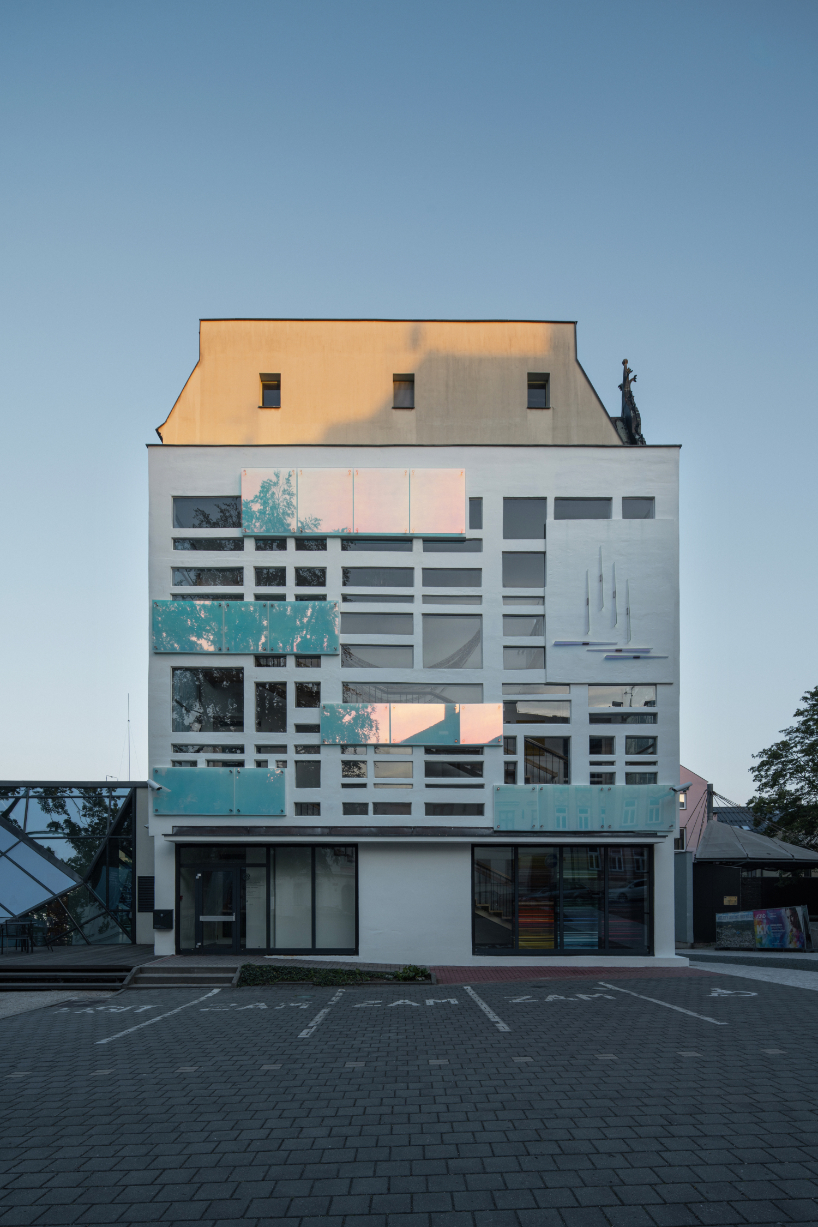
Tereza Šváchová creates a geometric collage with a dichroic effect
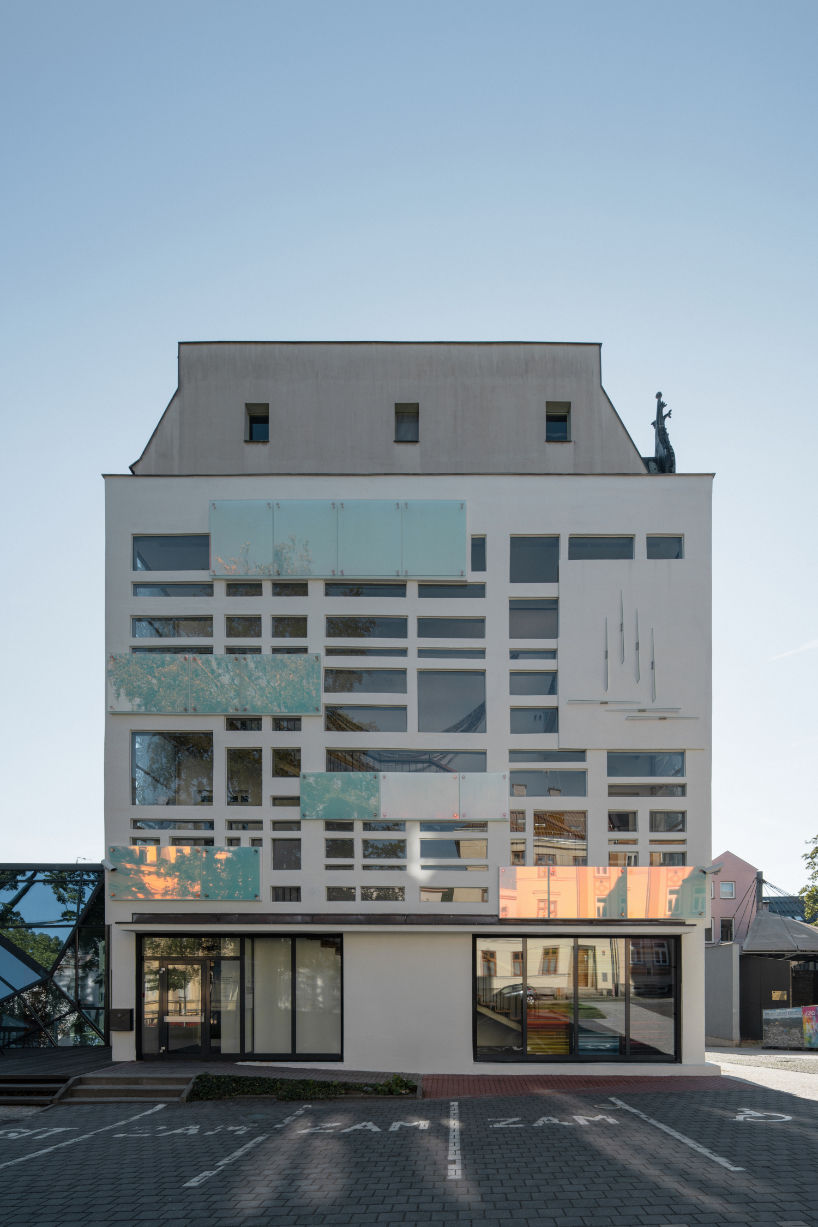
as seasons change, and as observers pass by, the glass lends an ever-evolving interplay of light and shade
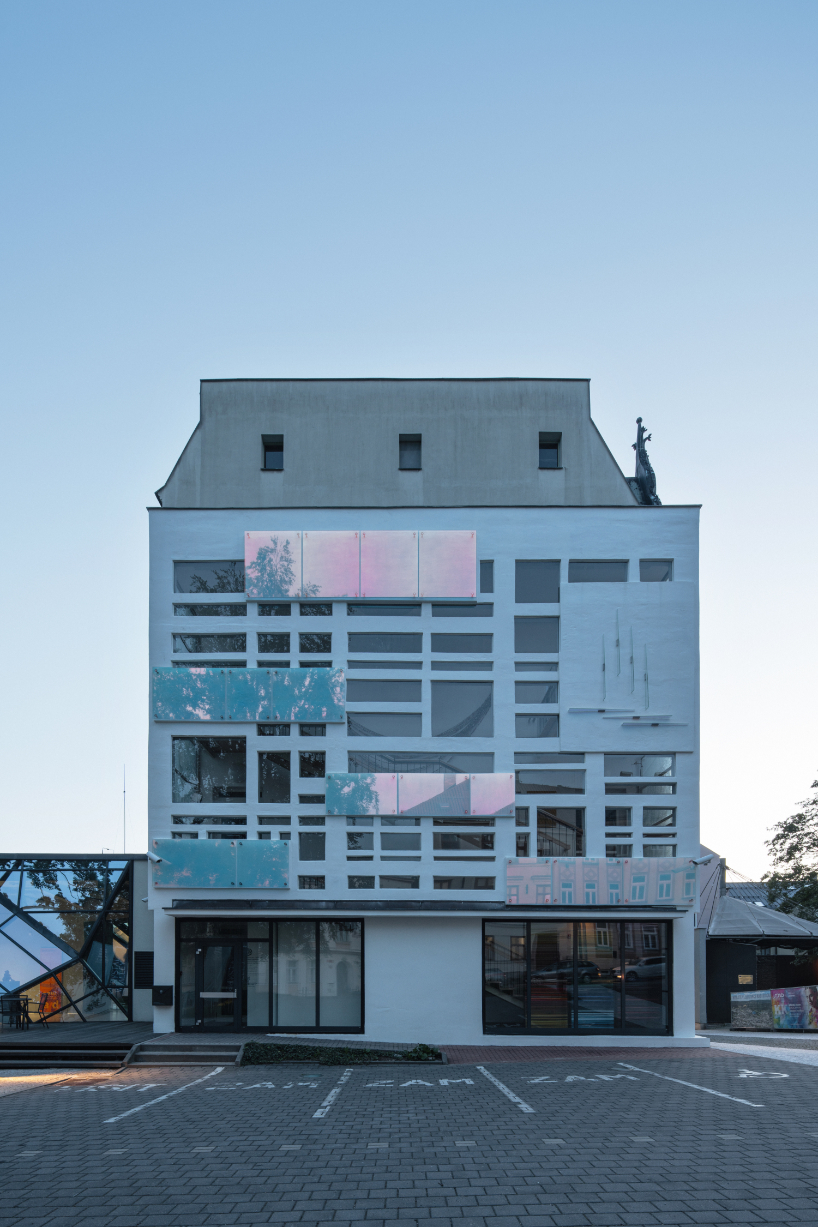
Tereza Šváchová’s intervention retains the original boundaries and purposefully creates a dynamic contrast
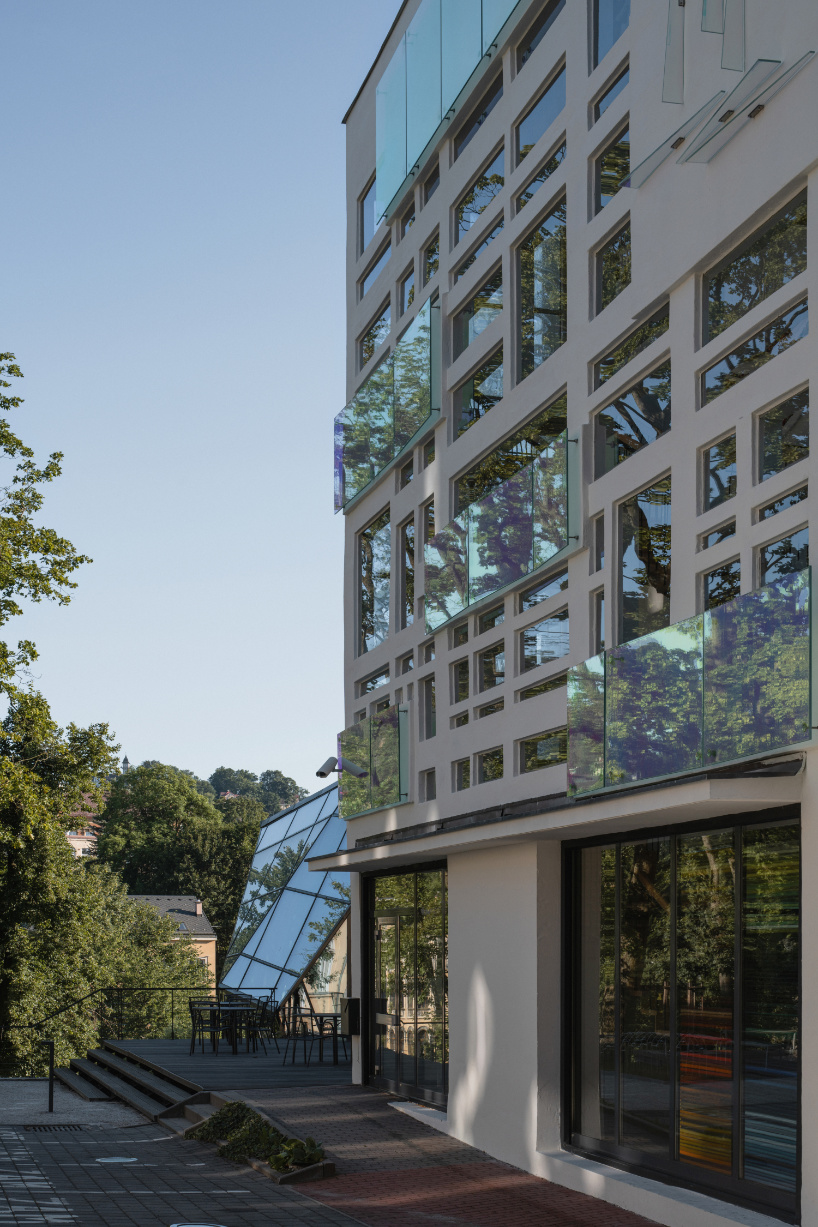
a geometrically pure grid defines the facade
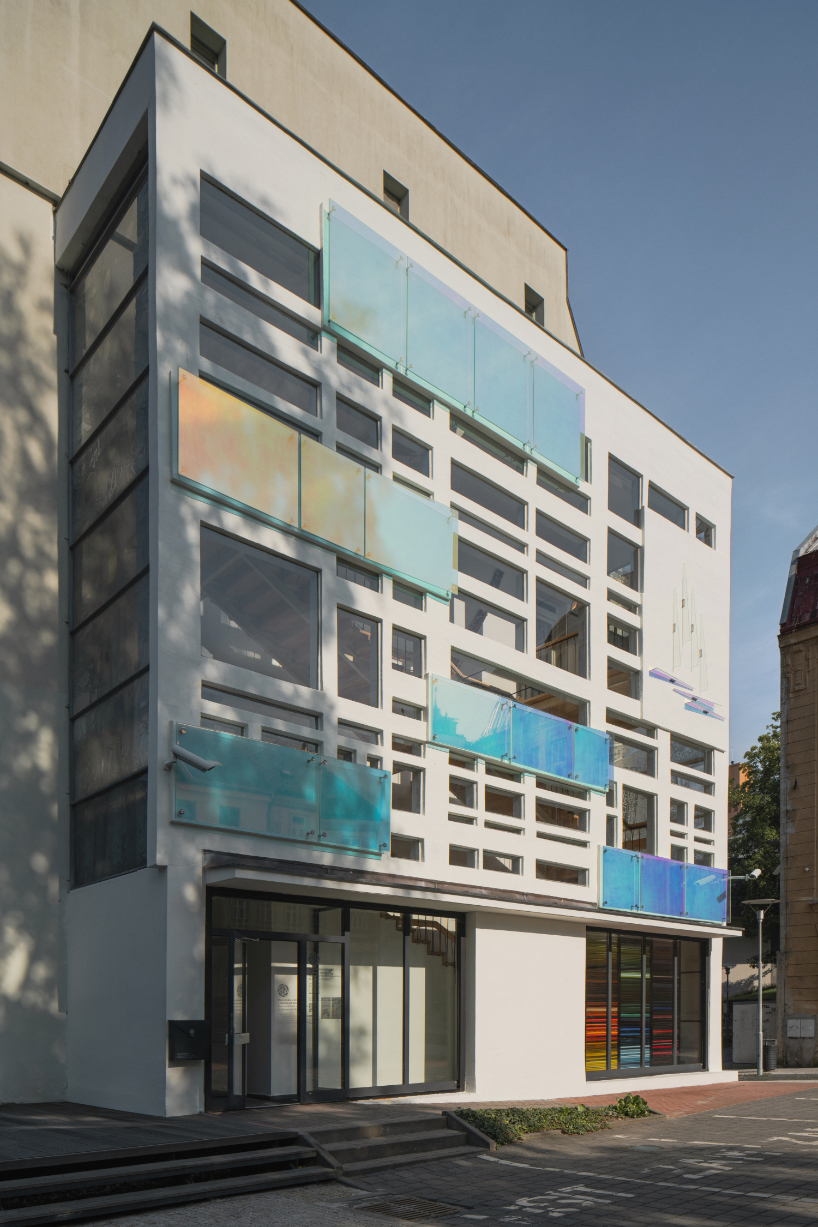
the point-anchored panes of glass are sandwiched with foil, thus safe and demountable for cleaning
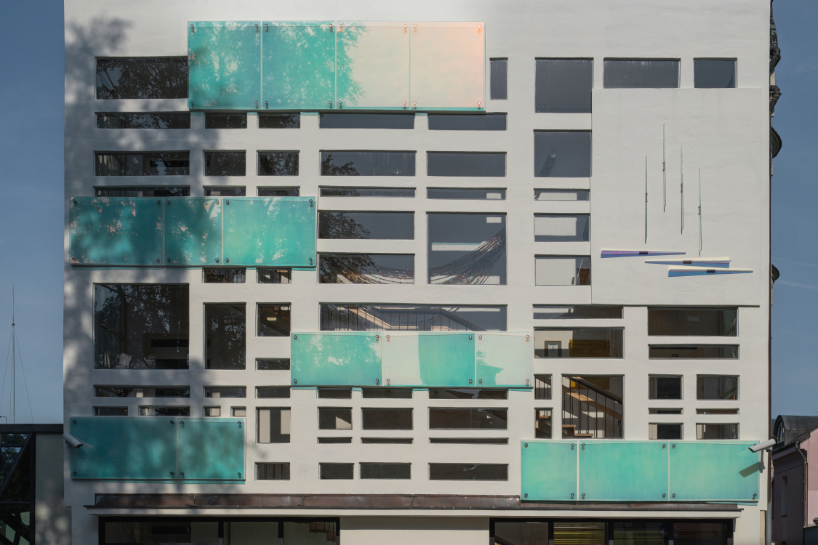
the largest of the surfaces remains seemingly empty, but over time it is filled with multitude prismatic reflections
